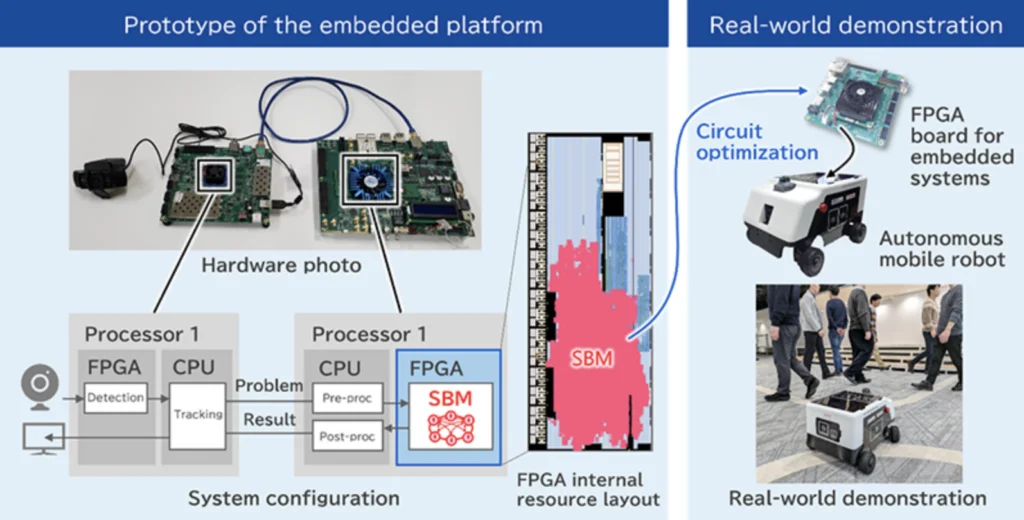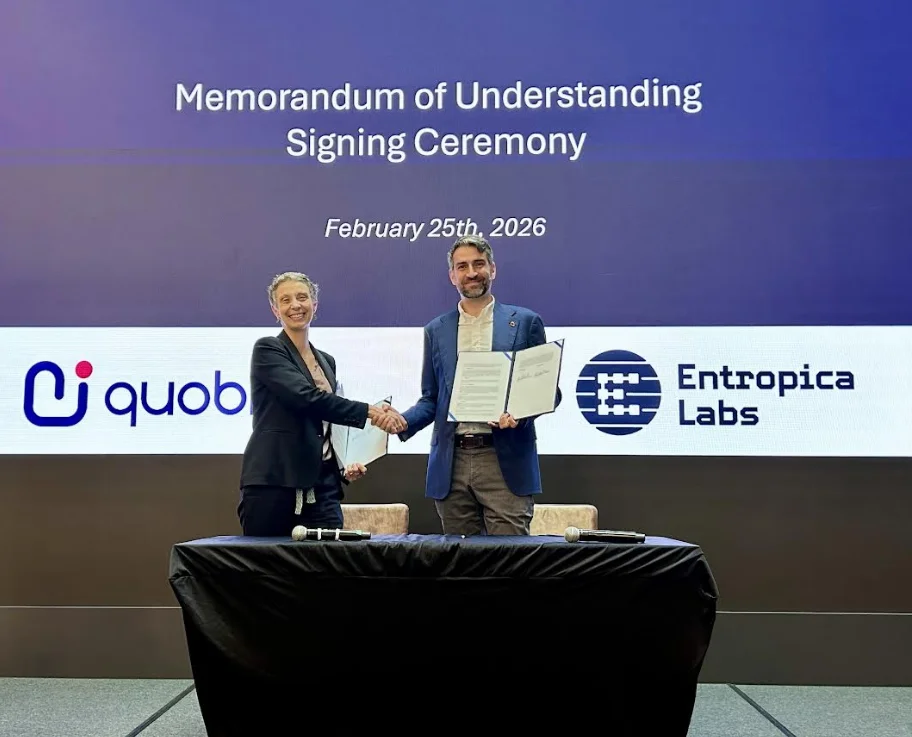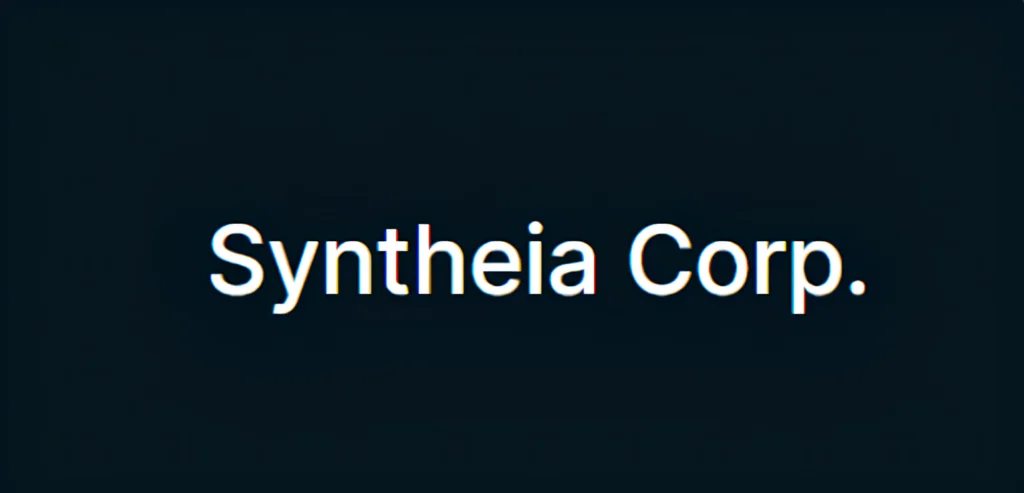Insider Brief
- The Polytechnic University of Madrid will participate in Madrid Quantum, a quantum communications project based in Madrid.
- This project will build the Madrid Quantum Communications Infrastructure (MadQCI), a quantum cybersecurity network that will link the metropolitan area of Madrid and connect with the future quantum communications network European (EuroQCI).
- Critical Quote: “Madrid Quantum is a project that clearly shows the commitment of the Community of Madrid to technology and innovation in leading areas such as quantum communications.” — Bárbara Fernández-Revuelta, deputy director of Research of the Community of Madrid
- Image: UPM
PRESS RELEASE — The Polytechnic University of Madrid participates in Madrid Quantum, the most ambitious quantum communications project in Madrid. This project will build the Madrid Quantum Communications Infrastructure (MadQCI), a quantum cybersecurity network that will link the metropolitan area of Madrid and will connect with the future quantum communications network European (EuroQCI).
The goal of the Madrid Quantum-CM (MadQ-CM) project, which has recently started its journey, is to promote a scientific and industrial ecosystem around quantum communications. The project belongs to the quantum communications program of the complementary plans, in which CSIC, and the autonomous communities of Galicia, the Basque Country, Castilla y León, Cataluña and Valencia also participate, and which is the largest program in quantum technologies in Spain. MadQ-CM is funded thanks to the Spanish Recovery and Resilience Plan, NextGeneration EU and the Community of Madrid. The project will tackle a range of activities, contributing to progress on secure, quantum-safe networks, photonic quantum states distribution, the development of ultra-precise systems of measurement and distribution of time signals, the development of new quantum algorithms and communication between quantum computers, among others. The MadQCI network – Madrid Quantum Communications Infrastructure will result from this project’s undertakings.
Building on previous activities in Madrid, where last year Telefónica, RedImadrid and the Polytechnic University of Madrid launched the largest quantum network based on Quantum Key Distribution (QKD) in Europe, MadQCI will connect the main research centers of the Community of Madrid in these technologies, and it will also connect them to government entities with high security needs. Producing a real, useful and functional quantum cybersecurity network. “MadQCI goes beyond what has been done to date. It does not simply stand to be a larger experimental network, but one that is qualitatively different: connecting key security centers and bringing this technology closer to its use in real applications, ”says Vicente Martín, UPM professor and coordinator of this project.

A pioneer and unique network in Spain, immune to any attack
MadQCI, with a radius of approximately 30km, is based on fiber optic connections and will link the metropolitan area of Madrid. These are surprising dimensions taking into account the nature of these technologies. The network will also be connected to satellite stations, key points to achieve long distance connections with the rest of Europe.
This network will then be of use not only for experimentation, but also for the technological demonstration of new services based on quantum technologies. Serving other mid-term and long-term goals in the long run, such as paving the path to the quantum Internet through photonic quantum states distribution, the development of ultra precise systems of measurement and distribution of time signals, the development of new quantum algorithms, communication between quantum computers or the creation of emitting devices of individual quanta. Quantum Key Distribution systems will also be implemented through fiber optics in conventional networks, integrated into the commercial telecommunications infrastructure. Developments will also be made for long distance quantum communication using satellites. MadQCI will be part of the future EuroQCI, the quantum communications network of continental scope that will link the whole of Europe.
“The quantum network implements cryptographic functions that are demonstrated safely, regardless of the ability of an attacker,” Vicente Martín explained.
“No matter the computational power the attacker has; Even if I had a quantum computer, I could not break a transmission of quantum keys” he continued. Therefore, a network enhanced with quantum security is immune to any computational attack. In addition, it enables other services, such as ultra precise time signals and other quantum sensing applications and, in the future, communication between quantum computers.
Dedicated to research and offering real world services
The Madrid Quantum-CM (MadQ-CM) project will carry out a two-year training plan for scientists and engineers, which will help consolidate progress and advance in the field of quantum technologies, with a special emphasis on fostering entrepreneurship. This, together with the creation of a business ecosystem that will launch the proposed developments and help the dissemination and exploitation of the results, will make effective the translation of scientific knowledge into benefits for society.
“It will be a permanent network dedicated to research and the practical demonstration of quantum communication technologies, connecting not only the “technology producers” but also the “users”, and it does so by using communication networks, not just connections between research laboratories”, said the UPM professor. The network is also integrated in the communications infrastructure, which is essential to be able to provide real services.
“Madrid Quantum is a project that clearly shows the commitment of the Community of Madrid to technology and innovation in leading areas such as quantum communications” said Bárbara Fernández-Revuelta, deputy director of Research of the Community of Madrid and representative of the community within the project.
The MadQ-CM project is coordinated by Vicente Martín, professor at the Polytechnic University of Madrid (UPM), and counts on the participation of the Autonomous University of Madrid (UAM), Complutense University of Madrid (UCM), IMDEA Software Foundation (IMDEA SW), IMDEA Networks Foundation (IMDEA NW), National Institute of Aerospace Technology (INTA), the Spanish Metrology Center (CEM) and the Vithas Foundation (FV).
For more market insights, check out our latest quantum computing news here.














